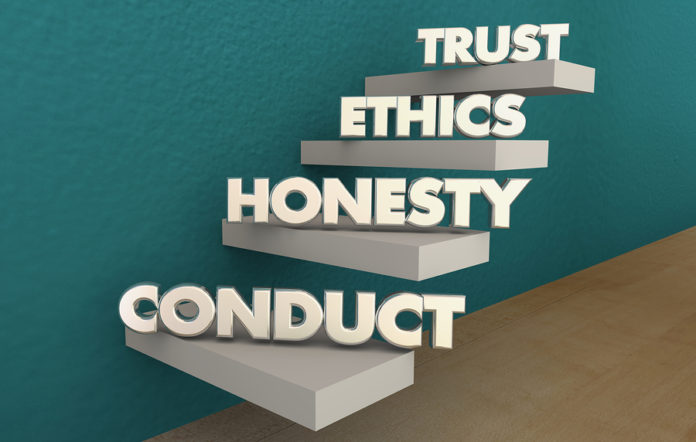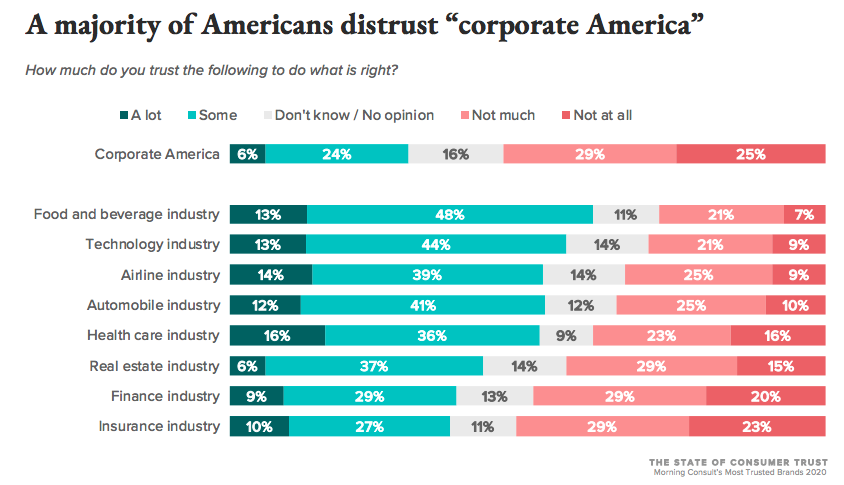
To say that our society’s current level of distrust is high seems like an understatement. According to Morning Consult’s latest Most Trusted Brands report, only half of Americans trust their primary doctor “a lot” to do the right thing, and that’s a good deal more than they trust Donald Trump (20%), religious leaders (15%), or the news media (8%).
However, they do put a reasonable amount of trust in the food and beverage industry.
While only 13% said they trust the industry “a lot,” an additional 48% said they have “some” trust. That makes food and beverage the most trusted of the industries assessed.
In addition, the food industry claimed four of the 10 most trusted brands overall:
- Chick-Fil-A (#6, trusted by 36.2% of respondents)
- The Hershey Company (#7, trusted by 36.1% of respondents)
- Cheerios (#9, trusted by 35.9% of respondents)
- M&M’s (#10, trusted by 34.8% of respondents)
In general, while they distrust the government and their neighbors, Americans are still positive about brands. The average trust rating for brands was 59%, and almost three-quarters (74%) said they trust the average major company to deliver consistently on their promises.
There are a few results that suggest the food industry has some room for improvement. Only 17% of Americans have a high level of trust in the labels on food packaging (which is more than they trust Hollywood [4%] but less than they trust Tom Hanks [34%]).
In addition, while some food companies were rated highly overall, they were rated more highly by older respondents than by younger ones. For example, The Hershey Company ranked #3 for Boomers, #4 for Gen X, #20 for Millennials, and didn’t make the top 25 for Gen Z.
Younger respondents are less trusting of brands in general — while a majority of Gen X and Boomers say that their default position is one of trust (“[Companies] have to do something bad to lose my trust.”), only 49% of Millennials take this position. Gen Z’s default is more likely to be distrustful (“They have to earn my trust.”).
Younger respondents also place more importance on the ethical components of trust. The 18-29 year-olds surveyed were more likely to prioritize ethical issues like “[companies] have strong ethical or political values” and “they treat employees better than they are required to by law,” while they were less likely to prioritize reliability issues like “they pay the taxes they owe” and “they make high quality products.”
Overall, Morning Consult’s findings suggest that food and beverage companies are in pretty good standing in the mind of the public. To keep that position, they’ll need to focus on doing the right thing both ethically and in terms of the product they deliver.






